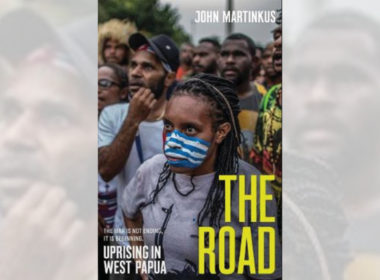Unless you work within the publishing industry, it’s unlikely you’ll be familiar with the specifics of the law relating to publishing contracts, and the ins and outs of the rights of authors and the licensing of copyright.
Some high-profile cases over the past decade have highlighted these issues, and have featured publishers winning a case against an online free archive of digital books, authors accusing other authors of plagiarism, and antitrust issues, with major retailers accused of conspiring to fix prices.
The traditional nature of publishing contracts has not fundamentally changed in the last decade or so, but contracts do now include new publication formats such as eBooks and audiobooks, says Katherine Giles, Head of Legal and Operations at the Sydney-based Arts Law Centre of Australia.
Giles began working at the Centre in February 2000 while she finished her law degree, and was admitted as a solicitor in 2003. Since she first joined the Centre in 2000, Giles has either worked or volunteered there.
Giles’ experience includes an in-house role at the ABC, and Senior Associate at MinterEllison in the intellectual property and media law team. Her background in the arts, entertainment and media industries has honed her ability to advise on intellectual property law and the full spectrum of pre-publication content issues spanning copyright law and policy, commercial intellectual property transactions and dispute resolution, and the arts/entertainment law with a focus on music and publishing, and media content issues and risk management.

Giles explains that her role includes preparing, advising on and drafting distribution, publishing and licensing agreements; providing intellectual property advice; and advising on a diverse range of pre-publication script and content issues, including defamation, contempt, court reporting, privacy, suppression and non-publication orders, misleading and deceptive conduct, surveillance devices, and confidentiality.
A national centre for author support
Giles explains, “The Arts Law Centre is a national community legal centre: it’s quite unique in that we provide advice to clients around Australia.”
The Centre was set up nearly 40 years ago by former Justice Michael Kirby and Dr Shane Simpson with the aim of providing information, advice and support to the broad spectrum of artists who often have to deal with issues around copyright, contracts and trademarks despite not being able to afford to go to a lawyer – especially in the early stages of their career.
While organisations might seek advice on publishing contracts and agreements, Giles says, the majority of the Centre’s clients are individuals.
“Most of the literary legal advice we give is to authors. At the moment, the stats for 2022 indicate that 12 per cent of our legal advice is to our authors, which is reflective of the Australia Council’s report that indicated authors make up 16 per cent of the arts population in Australia. Mostly, the advice we give is around copyright and how to protect it or handle infringement. We also review agreements. We have a document review service that commonly deals with publishing agreements and self-publishing agreements, some of which are not great for authors.”
Rather than having a typical membership structure, the Centre offers annual subscriptions at around $200, which includes one document review per annum (additional at $100 per review) and up to five free phone advice sessions.
“We don’t get enough government funding to provide services for free, which we’d love to do,” says Giles.
Publishing contracts: standard elements and variations
Giles says that the biggest concern of lawyers in the field is when publishing companies, usually self-publishing companies, ask authors to pay to have their books published.
“The traditional model is that the publishing company takes on the risk of publishing something, and they provide an advance. Even if they don’t pay an advance, they’re getting royalties from the sales of the work.”
In a typical publishing agreement, you would see a licence to the publisher and the licensing of certain rights that allow the publisher to publish and distribute the book, and most agreements would include the hardcover and paperback books, an eBook and audiobook rights as well.
Giles says, “You’re wanting to ensure the author is getting a fair, standard royalty for each of those rights that they’re licensing to the publisher. Normally it would be a licence to the publisher and those rights would revert back to the author if it’s no longer for sale after a certain period of time.”
She emphasises that authors should be advised to understand the difference between copyright licensing and ownership.
Authors should be advised to understand the difference between copyright licensing and ownership.
“Usually, the publisher only needs the licence for a certain period of time to make back their investment in the publication of the book. The terms really depend on the publisher and how many books are involved, and usually there’s a reversion of rights clause if the book is no longer available for sale.”
She adds, “If there’s remaindering of books, you would need to look at how that’s dealt with. If there are books that haven’t been sold, they often end up at bargain basement sales or are sent for pulping. The author may want to purchase those books back themselves to sell via their own website, for example.”
Two key considerations for Australian authors are the extent to which a publisher can exercise rights globally, and the different subsidiary rights to be aware of.
“We tell people to look out for the geographical area in which the publisher is going to exercise their rights. Australian authors should look at the type and size of the publisher, because you don’t want to give worldwide rights to a publisher that can’t actually exploit those rights outside of this jurisdiction.”
Subsidiary rights refer to the use of an author’s work in periodicals and reprints, TV and film adaptation rights. If a publisher is not expert in assisting authors with those sort of deals, Giles advises that authors might want to retain that subsidiary right.
Ensuring fair pay for work
“There are some pretty standard rates that you’d expect to see for advances and royalties, and established authors may receive a higher fee,” explains Giles. “Arts Law and the Australian Society of Authors can look at those rates as part of the review process to ascertain if they’re ballpark standard or whether authors ought to go back to the publisher and negotiate. The eBook and audiobook rates should also be higher than the printed work rates, because the publisher isn’t taking on printing costs.”
Other factors authors need to pay attention to are the delivery deadline and whether this is reasonable, along with how the publisher will determine that the manuscript is fit for publication. Additionally, the editing and revision process should be fair and reasonable for the author, with clarification about how this process will take place.
The contract should also outline the marketing and promotional strategy and what the author is responsible for in terms of time or financial commitment.
The contract should outline the marketing and promotional strategy and what the author is responsible for in terms of time or financial commitment.
“In the accounting and payment clause,” Giles says, “an audit clause should be included so that if the author is concerned they’re not receiving the royalties they believe they deserve, they can have those accounts audited to ensure that if there are discrepancies, they receive pay immediately.”
Sometimes publishers will try to restrict authors from publishing a similar work, or a similar work within a specific period of time. This is something, Giles advises, that authors can discuss with the publisher and negotiate on, depending on the nature of their work and their intentions with further books.
Ultimately, Giles says, the important takeaway for authors is “ensuring that the territories and rights are described correctly, and the accounting, payment and audit clause and a disputes resolution clause are there.”
Like a conversation
Giles says, “My message to so many authors is that it’s OK to ask questions if it’s not clear. A contract tells a story between two people: ‘how are you going to pay me, how do I get my work to you?’ I think of it like a conversation that clarifies how people are going to work together.”
She adds, “It’s hard for many people in the creative industries because often you are working on your own and often you’re working in the hope that you’ll get paid for something that you’ve created, but you may not have that money upfront, which is why it may be hard for people to get legal advice.”
One piece of advice Giles feels passionately about is a particular clause in the Copyright Act.
“We talk to authors about protecting their moral rights to ensure they are getting a credit, an attribution, and that there’s going to be no derogatory treatment of the work in accordance with the moral rights provisions in the Copyright Act. If there isn’t a moral rights clause in the publishing agreement, they can ask for one to be included. We can assist them with template agreements or clauses, for example.”
While there are no major differences in contracts, Giles says that in the case of non-fiction books the author may need additional legal assistance if the work is contentious, and there may be defamation issues in referring to real people. A pre-publication legal review may be required, she advises.
“As a copyright specialist, plagiarism is really interesting” says Giles. “Plagiarism has a huge reputational impact on the author who has been accused of it.”
She says that authors who believe they have had their work copied need to show that the person who has plagiarised has taken a substantial part of the work; this may be difficult, because it may not be a word-for-word copy. Rather, it could be the style and the structure.
“As a copyright law issue, it depends on looking at the two different works and a comparison to determine if there’s a copyright infringement. There have been many Australian cases that discuss what determines ‘substantial’, which is not quantitative but qualitative, and looked at on a case-by-case basis.”
Precarious income in a renowned market
In 2022, the book publishing industry in Australia generated a $1.7 billion revenue. Over a century since its inception, this industry has matured into an internationally renowned market that exports works worldwide.
According to Macquarie University’s Paul Crosby, David Throsby and Jan Zwar in their submission to the proposed National Cultural Policy, authors’ incomes became increasingly precarious in the pandemic and have continued to be precarious.
Authors’ past sources of income from personal appearances, such as school visits and other paid activities, were not available during the intermittent lockdowns and during times when there were restrictions on gatherings. There is a call for greater government funding in the form of targeted grants and regulatory support at a federal and state level to maintain and grow the Australian publishing sector.
Giles agrees that this is needed. “As someone who loves to read, I want to read more Australian voices,” she says.

![[image] drawing of people stealing contents of books to illustrate publishing law](https://lsj.com.au/wp-content/uploads/2023/06/publishing-law-for-web.jpg)


